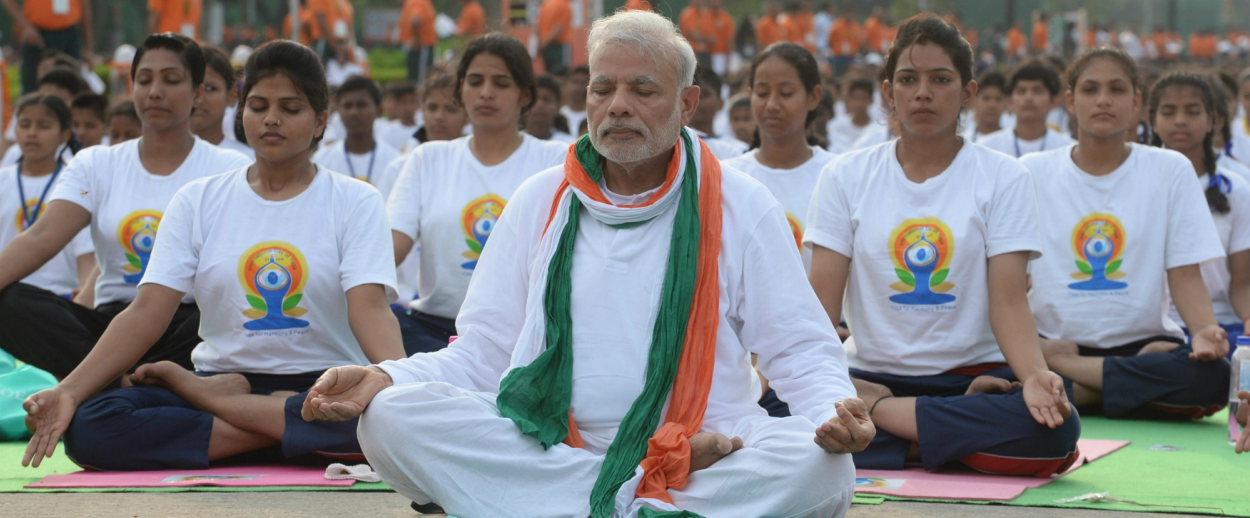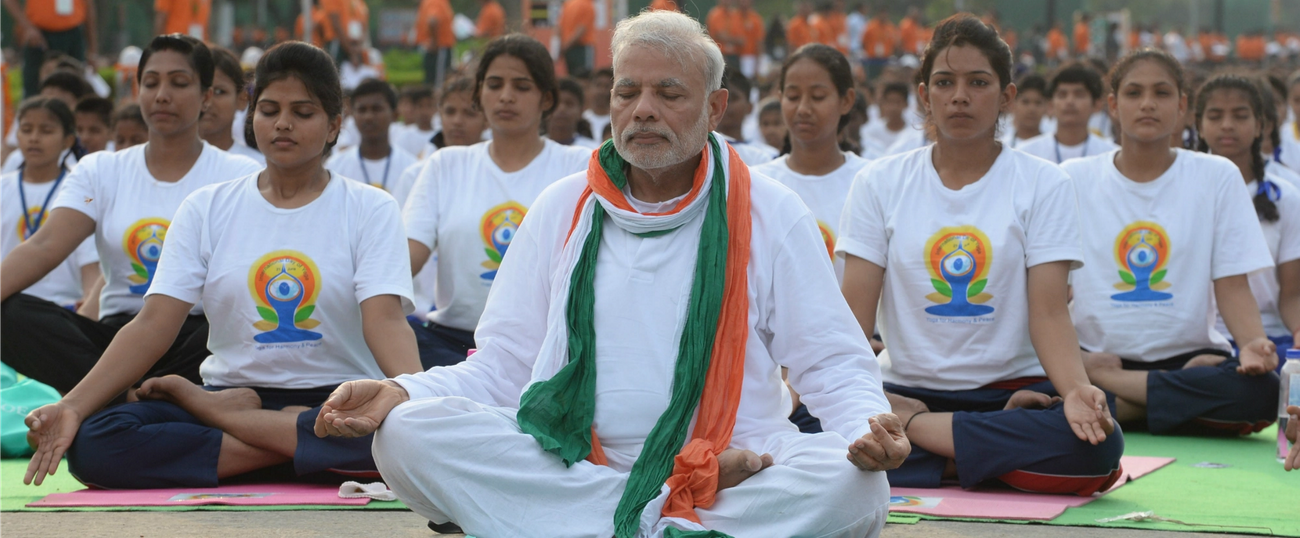In Historic Shift, India Abstains from United Nations Vote Condemning Israel
Move illustrates warming ties with Israel under Prime Minister Narendra Modi




Over the weekend, the United Nations Human Rights Council condemned Israel for its conduct during last summer’s Gaza war. Given that over the course of its history, the body has condemned the Jewish state more than all other states combined, this would not normally constitute news. But as it turns out, there was one nugget of noteworthiness buried in the otherwise perfunctory spectacle—the abstention of India.
Historically, India has voted against Israel within the United Nations, while maintaining close economic and defense ties with the Jewish state outside of it. This policy was on display last July when the U.N. Human Rights Council voted to authorize an inquiry into the Gaza war, with a mandate that singled out Israel for opprobrium without mentioning Hamas. At the time, India voted in favor of the mandate, while the U.S. and Israel rejected it as biased. This past weekend, however, when the report’s findings came up for a vote, India changed its tune, and abstained from the council’s condemnation.
India’s shift away from a reflexively anti-Israel approach at the U.N. is only the latest sign of warming ties between the Jewish state and the world’s largest democracy under new Prime Minister Narendra Modi. Last September, Modi met with Israeli Prime Minister Benjamin Netanyahu on the sidelines of the U.N. General Assembly, in the first meeting between the two countries’ premiers in over a decade. In October, India inked a $525 million arms deal with Israel, spurning a competing American offer. Finally, this past May, India’s foreign minister announced that Modi would be visiting Israel in the coming year, a first for an Indian prime minister.
The domestic reaction to India’s U.N. shift goes a long way toward explaining these moves. The country’s pro-Israel gesture was greeted with approval not just in Jerusalem, but among rank-and-file Indians. Within an hour of the vote being announced, the hashtag #IndiaWithIsrael began trending on Twitter in India:
First Time in History India abstains from voting on Anti-Israel resolution at UNHRC. Thank You @narendramodi ji #IndiaWithIsrael
— Tajinder Pal S Bagga (@tajinderbagga) July 3, 2015
India abstained its vote in UNHRC against Israel Proud Moment for every Indian #IndiaWithIsrael
— Anshul Saxena (@AskAnshul) July 3, 2015
Israel has long been popular in India—perhaps even more so than in the United States—with a majority of citizens expressing favorable views of the Jewish state. As such, Modi’s moves reflect not only his own personal inclinations, but also constitute good domestic politics. At a time when his much heralded economic reform agenda is stalled in parliament, pro-Israel moves give the prime minister and his party a populist path to bolster their base and curry favor outside of it, all while bypassing the legislature, much like President Obama’s recent executive actions on immigration and the environment.
At the same time, by merely abstaining from the U.N. vote rather than openly siding with Israel, Modi and his ministers were able to continue asserting their government’s support for the Palestinians, thus placating Arab partners in the region and critics at home. As foreign service spokesman Vikas Swarup put it, “There is no change in India’s long standing position on support to the Palestinian cause.”
That said, the import of the shift was lost on few. The Modi government attempted to attribute their vote to the fact that the resolution referenced the International Criminal Court, a body to which India is not a party, and which it does not wish to empower. But India has repeatedly supported multiple U.N. resolutions that reference the ICC, suggesting that the government’s stance is more spin to throw off domestic opposition than a serious policy rationale.
With Modi set to visit Israel in the months ahead, it seems that Indian support for Israel that was once symbolic is slowly turning substantive.
Previous: The Most Important Thing Netanyahu Did in New York Wasn’t at the U.N.
India Snubs U.S. Missiles in Favor of Israeli Bid
Indian PM Announces Historic Visit to Israel
Yair Rosenberg is a senior writer at Tablet. Subscribe to his newsletter, listen to his music, and follow him on Twitter and Facebook.